By Zac Byer, on Mon Apr 23, 2012 at 10:00 AM ET 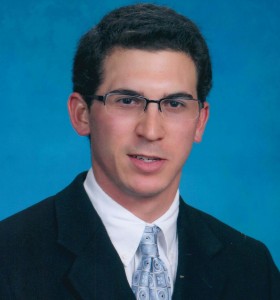
Read about our new feature Gen Y “He Said; She Said”
Read Jordan Stivers’ “She Said”: Obama for President
Imagine you’re signing up for college classes. You find one that sounds too good to be true – something like “The History of Rock and Roll.” The professor sends you the syllabus in advance, and it’s everything you wanted. With excitement you show up on the first day of class ready to, well, rock.
The first class is great, but as the weeks go on, you’re thrown for a loop. First, your professor ditches Elvis and the Rolling Stones for Mozart and Bach. “It’s not my fault,” he says with his hands thrown up. “The department made me do it!” He continues to veer sharply away from the syllabus, requiring extra essays on top of the previously scheduled exams. This time he announces to the whole class: “The Dean isn’t cooperating with me!”
Finally, your professor changes the class’s meeting times only weeks before the end of the semester. Yet again he cries innocence, e-mailing all of you with this message: “I’ve been stone-walled by the registrar’s office. Don’t blame me.”
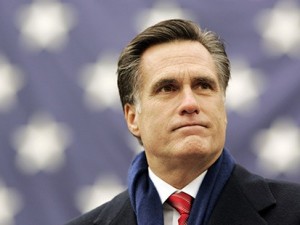 Would you sign up for another class with him? If your boss gave similar excuses for unexpected changes to your contract or workplace, would you want to continue working for him? Would you sign up for another class with him? If your boss gave similar excuses for unexpected changes to your contract or workplace, would you want to continue working for him?
This piece is supposed to be about why “my” generation should vote for Mitt Romney. I could write about Romney’s simpler, smarter tax plan. It disregards President Obama’s gimmicks like the “Buffet Rule,” and focuses on long-term solutions like a corporate tax rate that will allow American companies to compete globally and hire more workers in their twenties and thirties.
I could write about Romney’s common-sense, comprehensive debt-reduction plan. President Obama has added $6.5 trillion to the national debt in one term. The first forty-three presidents COMBINED accumulated $6.3 trillion. Romney will cap spending at 20% of the GDP, reduce the Washington waste, fraud, and abuse, and consolidate federal agencies to create a more efficient and effective government.
Read the rest of…
Zac Byer: Gen Y He Said — Romney for President
By Jordan Stivers, on Mon Apr 23, 2012 at 9:00 AM ET 
Read about our new feature Gen Y “He Said; She Said”
The race to the White House is off to a fast start now that Mitt Romney is the presumptive Republican nominee. As a Kentuckian who has watched too many horse races to count, I know that consistency of performance is the most important factor in determining who will be wearing the roses at the end of the race. In the midst of an economic recovery that has no simple or easy solutions, and high stakes for the future of our Millennial Generation, we need to place our bet on President Obama to lead us through.
The result of this election will determine the direction our country will take for years to come, and as young people we will have to live with the consequences, good or bad, of the policies of the next President. I would argue that President Obama has best represented my generation’s interests on every issue since he has been in office. From making higher education more affordable to protecting the environment we live in, from championing reproductive freedom to shaping a responsible foreign policy, President Obama has proved that he is committed to protecting our future.
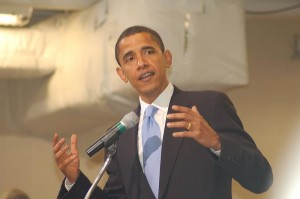 The economy is the issue that has been at the forefront of this election, as it should be. Many of us are wondering how we are going to pay off our student loans, find a good job, buy a house, and support children. While Mitt Romney seems to think that simply being a child of privilege and making a lot of money qualifies him to be President, it is President Obama who has proven that he can turn the economy back in the right direction. He understands that strengthening the middle class so that they can contribute to economic growth is the only way to truly rebuild an economy that was wrecked in the first place by Republican policies that favor the rich. The economy is the issue that has been at the forefront of this election, as it should be. Many of us are wondering how we are going to pay off our student loans, find a good job, buy a house, and support children. While Mitt Romney seems to think that simply being a child of privilege and making a lot of money qualifies him to be President, it is President Obama who has proven that he can turn the economy back in the right direction. He understands that strengthening the middle class so that they can contribute to economic growth is the only way to truly rebuild an economy that was wrecked in the first place by Republican policies that favor the rich.
Read the rest of…
Jordan Stivers — Gen Y She Said — Obama for President
By Jonathan Miller, on Mon Apr 23, 2012 at 8:30 AM ET 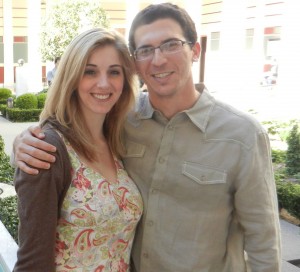 This morning we introduce a brand new feature at The Recovering Politician: the Gen Y “He Said; She Said” debates. This morning we introduce a brand new feature at The Recovering Politician: the Gen Y “He Said; She Said” debates.
“He” is Zac Byer, a longtime staff contributor at the RP, who also happened to study at the University of Pennsylvania under the tutelage of Friend of RP (also the RP’s college roommate) Ronald Granieri. Zac is an outspoken Republican, and currently works for one of the leading minds behind GOP national strategy, Dr. Frank Luntz.
“She” is Jordan Stivers, a recent graduate of the University of Kentucky, a former volunteer for the RP, and a passionate Democrat who currently serves on the communications committee of the newly formed Young Democrats of America Faith and Values Initiative.
As you might be able to tell, “He” and “She” are dating. Or talking to each other. Or in a relationship. Or whatever Gen Y calls these types of relationships.
This morning, we will be featuring the first of their Gen Y “He Said, She Said” debates — discussing critical issues from the perspective of their generation. Today’s debate: the 2012 Presidential election. At 9:00 AM, Jordan will argue that Barack Obama’s reelection will best serve the interests of their generation. At 10:00, Zac will counter that his generation needs the change represented by Mitt Romney.
So tag along, and enjoy a younger version of Carville and Matalin. In reverse.
By Zac Byer, on Tue Mar 6, 2012 at 9:00 AM ET 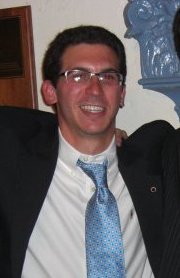 Good morning, and welcome to Super Tuesday! As Mitt Romney continues his quest to win the look-alike contest with the guy in the Levitra commercials — I mean, win the Republican nomination — here is your prix fixe menu for one of politicos’ favorite days of the year… Good morning, and welcome to Super Tuesday! As Mitt Romney continues his quest to win the look-alike contest with the guy in the Levitra commercials — I mean, win the Republican nomination — here is your prix fixe menu for one of politicos’ favorite days of the year…
Appetizer: Anti-incumbent sentiment is at an all-time high. If you took high school civics, you know that incumbents have a 90+% re-election rate. In 2012, however, nearly 50% say they would vote out their congressman, and Congress’ approval rating is 9% (I bet Gaddafi had a higher approval rating). We won’t see turnover like that, of course, but there’s fear on Capitol Hill of a “Vote Them All Out” groundswell propagated by someone like Donald Trump. What do House Republicans have going for them, even though they could give back the congressional majority they won on the Tea Party wave in 2010? We’ve found Nancy Pelosi’s unfavorability numbers are 15 points higher than John Boehner’s. Not that people are pleased with Boehner, but tell them that Pelosi may become Speaker again, and they shudder. Look for a recycling of the anti-Pelosi videos and images from the best ads of 2010.
Read the rest of…
Zac Byer’s Prix Fixe Politics: Super Tuesday Special
By RP Nation, on Wed Nov 23, 2011 at 8:30 AM ET  I first entered politics in 2004 at the age of 17, going door-to-door in my home county of Hamilton County, Indiana for Gov. Joe Kernan and the Kerry-Edwards campaign. I can recall meeting with an organizer at a coffeeshop with a high school friend of mine and being handed a packet of names, a bundle of brochures, and a Joe Kernan for Governor lapel sticker. Out we went, knocking on door after door in the neighborhoods of Noblesville, the county courthouse’s majestic clock tower looming in the background. Having finally exhausted our packets after several hours, we returned to Democratic headquarters where we were greeted by a bevy of seasoned local Democratic activists (read: cute, earnest, little old ladies). I first entered politics in 2004 at the age of 17, going door-to-door in my home county of Hamilton County, Indiana for Gov. Joe Kernan and the Kerry-Edwards campaign. I can recall meeting with an organizer at a coffeeshop with a high school friend of mine and being handed a packet of names, a bundle of brochures, and a Joe Kernan for Governor lapel sticker. Out we went, knocking on door after door in the neighborhoods of Noblesville, the county courthouse’s majestic clock tower looming in the background. Having finally exhausted our packets after several hours, we returned to Democratic headquarters where we were greeted by a bevy of seasoned local Democratic activists (read: cute, earnest, little old ladies).
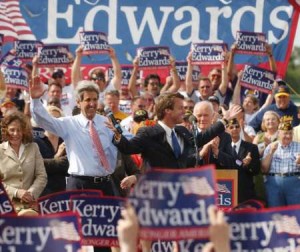 What ensued was a full twenty minutes of gushing and doting that centered on one theme: how precious of you two to be volunteering for a political campaign when you can’t even vote yourselves! They were enamored with us, and we with the compliments. That was the day I decided that an activity that felt this good had to be something I pursued in some more substantive way moving forward, which brings us to the University of Kentucky. What ensued was a full twenty minutes of gushing and doting that centered on one theme: how precious of you two to be volunteering for a political campaign when you can’t even vote yourselves! They were enamored with us, and we with the compliments. That was the day I decided that an activity that felt this good had to be something I pursued in some more substantive way moving forward, which brings us to the University of Kentucky.
In my first semester as a college freshman, I attended a campus event at which student organizations could promote themselves and happened upon the table for the UK College Democrats. Intrigued, I got to talking to several of their members and agreed to attend their first meeting, which, like any well-planned first semester meeting featured free pizza and soda. I became a regular at these meetings over the coming weeks and when a position opened up at the end of the semester for the chapter treasurer, I was nominated and unanimously elected to the position. I served as the treasurer for some three months before our president announced she would not be running. All heads in the room turned to me and I was once again nominated and unanimously elected president of the chapter, the youngest such president in chapter history. While I was president of the UK chapter, we volunteered for John Yarmuth’s winning 2006 congressional campaign as well as for the campaign of Ken Lucas in northern Kentucky’s 4th district. It was while working on the latter campaign that I first met a man who would come to play a pivotal role in my development as a professional political staffer.
Read the rest of…
Richard Becker – How I Got Bit by the Political Bug
By Zac Byer, on Fri Sep 9, 2011 at 8:30 AM ET Can we define a generation? If so, how should we? Personally, I tend to be skeptical of labels. We see it all the time in politics, when a candidate campaigns under one banner, but goes to sleep under the cover of another. We place so much trust in the label that it colors our perception of the fuller picture and prevents us from accepting future developments in character or content.
 Remembering 9/11 While we still need to answer those first two questions, the related question on my mind is this: Are we the 9/11 Generation?
To help me reach an answer, I asked my grandfathers to help me consider the question from a different historical perspective. On December 7, 1941, my father’s father was eight years old. He remembers hearing about the attacks on Pearl Harbor. He remembers seeing the headlines in the extra edition newspaper. In the weeks and months that followed, he saw Atlantic City hotels turn into barracks, and watched his father return home from his dentist’s office to help as an Air Raid Warden in Trenton, New Jersey. But he does not carry with him lasting images of the USS Arizona in flames.
 70 years ago... On December 7, 1941, my mother’s father was ten years old. He remembers when news from Hawaii first came over the radio. He also remembers the newspaper articles. He recalls having no idea where Hawaii was, let alone Pearl Harbor. So, he went next door where one of the local teachers outside Pittsburgh, Pennsylvania pulled out a map and pointed out the islands 2,500 miles off the coast of California. But images of the actual attack escape him, too.
In some ways, my experience on September 11, 2001 parallels my grandfathers’ experiences nearly sixty years prior. I lived outside Los Angeles, nearly 3,000 miles away from the four hijackings. I was only thirteen years old, had never heard of Al Qaeda, and could not find Afghanistan on any map. Yet, the images of the falling Towers, burning Pentagon, and smoldering Shanksville field remain seared in my memory. And they will remain with me forever.
I think it is that difference – that real-time connection to the day’s tragic events – that moistened the adhesive on the “9/11 Generation” label. We take for granted the technological advances in information communication, but our grandfathers did not have those luxuries seventy years ago. And because we have been so diligent in our remembrance, so reflective in our recollection, today’s twenty-somethings have accepted that label and stuck it right on our chests.
But, why define ourselves by tragedy? Why let nineteen terrorists dictate the label of our generation?
Read the rest of…
Zac Byer: Are we the 9/11 Generation?
By Zac Byer, on Tue Aug 16, 2011 at 12:00 PM ET Ladies and gentlemen, it’s the dog days of summer! I’m starting to think August is the worst month of all twelve: ridiculous heat and humidity, no major holidays, back-to-school shopping, Congress on vacation (OK, maybe that’s the one redeeming aspect), and so on. Yes, I know pre-season football is gearing up, but don’t forget that we are closing in on MLB pennant races. A bright spot indeed! As Pujols, Jeter, Lincecum, and Halladay jockey for the post-season, let’s talk to someone who very well may be there in a few years.
I grew up with Andrew Pevsner in Southern California, and remain close friends with him today. But while I’m sitting in classrooms suffering through law school’s Socratic Method, Pevsner is warming up in the bullpen for the Great Lakes Loons. The Loons are the Los Angeles Dodgers’ Single-A minor league club in Midland, Michigan, and Pevsner is one of their southpaw relievers. Drafted in 2010 out of Johns Hopkins, Pevsner spent his first professional season playing Advanced Rookie ball for the Raptors in Ogden, Utah. Let’s take an inside look at what it’s like to play professional baseball and live nearly every boy’s childhood dream.
Zac Byer: You have mentioned that you were not following the draft when you were selected, but rather you started receiving congratulatory text messages from friends after the pick. Did you have any expectations of being drafted, let alone in the 16th round?
Andrew Pevsner: Not really . . . I hadn’t heard from any clubs for a few weeks leading up to the draft. It had been about 10 days or so since our college season ended, I was hoping to try to get myself back into great shape and maybe go to some workouts and try to sign as a free agent after the draft.
ZB: Who called you from the Dodgers to let you know that you had been drafted? What did he say to you?
AP: My scout from the Dodgers, Clair Rierson called me. I was so excited when we were talking that I don’t fully remember what we said. I do remember him asking me how I was feeling, and telling me that someone would call me with more details later that night.
ZB: You got the call from Rierson and found out you were going to play professional baseball for your favorite team – were you able to take a breath and enjoy the accomplishment, or were you into a new routine right away?
AP: There were only about ten days between the time I got drafted and the time we went to Ogden. I took the first night to celebrate and try to soak up the moment. After that, I spent about four days working out and throwing in Baltimore before I flew to Camelback Ranch [in Arizona] for a couple days of physicals and workouts. From there we flew to Ogden.
ZB: What’s a typical day like for you now?
AP: It really depends on where we are. If we’re at home, and it’s not a lift day, I’ll get to the ball park between 1 and 2 in the afternoon. Pitchers stretch, throw and condition before shagging batting practice. After BP we have some time to get some food in the clubhouse and get ready for that night’s game.
ZB: What has been the most surprising aspect of being a minor league baseball player?
AP: You hear guys talk about the grind and staying even-keeled through all the ups and downs, but it’s something that you can’t really appreciate until you go through it.
ZB: What has been the most challenging aspect of the last few seasons in the minors?
AP: Baseball is a humbling game. Everyone fails at some point or another. Most players fail repeatedly. Learning how to deal with failure so that you can fail less often and for shorter periods of time has probably been the hardest part.
Read the rest of…
Zac Byer: An Interview with L.A. Dodgers Minor League Pitcher Andrew Pevsner
By Zac Byer, on Tue Jul 26, 2011 at 3:00 PM ET Bipartisan meetings continue to fail to produce results on the debt crisis If you watched the TV show Lost, you probably sat through some episodes (or seasons) and found yourself, well, lost. That’s the same way I feel trying to wade through the muck coming out of Washington lately. Some days, the debt crisis seems like a grade-AAA fiasco. Other days, I wonder if this is all just a bunch of pre-primary fear-mongering.
Last night, President Barack Obama started his first prime-time address on the debt crisis with guns ablaze against George W. Bush’s tenure. Speaker John Boehner did not mention the words “revenue” or “loopholes” or “tax code” once. Really? Compromise? President Obama, don’t you remember your campaign line about this being the United States of America, not the Blue States or Red States of America? Speaker Boehner, don’t you remember when, only days ago, you put your support behind a plan that sought to raise nearly $800 million in revenue? IS ANYBODY LISTENING?!?
It’s hard to keep track of all the plans the Beltway crowd has sent our way. Grand Bargain? Give me a break, Mr. President. Henry Clay would be disappointed. Constitutional amendment? Uh, remember the 18th Amendment? That’s what happens when people make lofty decisions without considering all of the potential consequences. The Gang of Six? They say a group starts losing productivity when the membership exceeds seven people – maybe that’s why the plan makes some sense. But, until the Six make like Ross Perot and explain the plan to the public, our skepticism will remain.
As America approaches her debt ceiling, we are nearing our Regret Ceiling. Most people think that Congress will raise the debt ceiling by August 2nd. If our representatives and president fail us, here are a few of the regrets to expect:
Read the rest of…
Zac Byer: The Regret Ceiling
By Zac Byer, on Thu Jul 14, 2011 at 11:00 AM ET RP Readers, here’s your opportunity to prove to one and all that you could sit for the SAT without breaking into a cold sweat:
Jon walked to work at an average speed of 6 miles per hour and biked back along the same route at 10 miles per hour. If his total traveling time was 2 hours, how many miles were in the round trip? Your choices are A. 6, B. 6.25, C. 7.5, D. 8, or E. 10.
Chances are you could probably narrow your choice down to two or three possibilities. But, what if you are a high school junior, enrolled in a school that is overcrowded and underfunded, sitting in classes taught in two languages, and nobody in your family has ever taken the SAT before? What are your chances then?
***
My friend Jack did not have to deal with those challenges when he was preparing to apply to college. The road was pre-paved, and Jack smoothed it out along the way as he studied for the SAT, applied to college, and eventually accepted admission at the University of Southern California.
When he got to USC, Jack caught the entrepreneurial bug. It’s like the “politics bug” – once you catch it, you have a hard time running away from it. Not far removed from taking the SAT himself, Jack started tutoring some family friends for the test. Two students quickly turned into ten, and Jack found that he had written enough of his own material to create a full-fledged pre-college outreach program. That’s how Study Smart Tutors was born.
***
This is a brief look into entrepreneurship and education. They are two worlds we don’t think of colliding; but, when they do, the reaction sparks unlimited possibilities. Like in any chemical reaction, however, there must be just the right amount of reactants…
• 1 Part Risk: Jack graduated college and decided to grow Study Smart Tutors. He turned down stable jobs that most recent college grads now dream of, trading them in for a seat behind the wheel of his own company. Recently, I asked him if he was nervous to take on the gamble that is entrepreneurship as a twenty-something. “Now is the time with the least risk,” he said. “When you’re young and unattached is the time to bet big.” Of course there are still nerves and concerns, and by Jack’s own admission, “things aren’t perfect, especially when there are no regular paychecks or bankable guarantees.” But he understands the risk he is assuming, and he knows that it will be more difficult to take these chances as he gets older.
Read the rest of…
Zac Byer: Entrepreneurship and Education . . . A Much-Needed Marriage
By Grant Smith, RP Staff, on Wed Jul 13, 2011 at 11:00 AM ET The Politics of Generation Y Revisited On June 15th, my esteemed colleague, Zac Byer, published a thoughtful piece on generation Y’s place in the world. Most importantly, he zeroed in on Gen Y’s strong attachment to nostalgia.
Perhaps most insightful, he theorized that this attachment to nostalgia is potentially rooted in a generational fear that what lies ahead may not be as bright as what has already passed.
At risk of sounding like a pessimist, one has to wonder, “what if the pessimists have this one right?” What if Gen Y – financially speaking – is destined to end up as a new “lost generation?”
Let’s look at what is coming down the road: student loan debt that surpasses credit card debt; risk of inflation from multiple rounds of quantitative easing; the end of Social Security and Medicare as we know it; the list goes on and on.
Like the credit card shopper who splurges at the store, only to wind up with the bill months later, Gen Y is very likely to be the generation who receives the credit card bill in the mail from a previous generation or two. Unlike the credit card shopper who at least got to enjoy their products, Gen Y may get all of the tab, but none of the goods.
Read the rest of…
Grant Smith: The Politics of Gen Y Revisited – A New Lost Generation?
|
The Recovering Politician Bookstore
|
 Would you sign up for another class with him? If your boss gave similar excuses for unexpected changes to your contract or workplace, would you want to continue working for him?
Would you sign up for another class with him? If your boss gave similar excuses for unexpected changes to your contract or workplace, would you want to continue working for him?
















